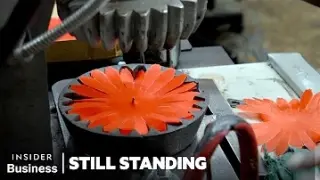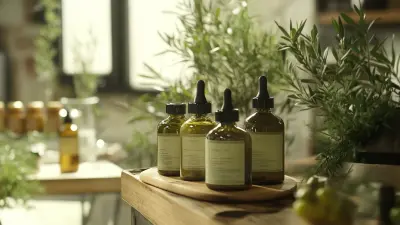Leave Your Message
- Phone
- E-mail
- Whatsapp
- Whatsapp


Artificial flowers have currently been in demand across the whole globe by buyers looking for reputable manufacturers of exceptionally quality products. However, with so many options, it becomes a challenge to really find such suppliers who supply those aesthetically enticing artificial flowers but not limited to strict quality standards. Since this blog is designed for buyers to find trustworthy manufacturers, it is worthy because it will help all investments become long-lasting and enhance those offerings.
Dongguan Hmflowers Industrial Company Limited is a perfect representation of a manufacturer operating in an incredibly vibrant industry. In 1998 we were founded by my father. We pride ourselves on our strong production capacity and innovation abilities in artificial flowers, trees, plants, and fruits. More than that, we are set apart from all the competitions to become a reliable choice for global buyers who are in search of superior artificial floral solutions through commitment to quality enhancement and craftsmanship. Join us in discussing the most critical processes and factors for choosing the right manufacturing partner for your artificial flower needs.

An essential quality of a partner for international buyers is the understanding of the key defining qualities for trusting manufacturers. Manufacturers generally breed a reputation based on their commitment towards quality control and maintaining product standards. Compliance with any industry requirements and specific certification will augment the probability of getting quality products. Buyers then should look for transparency in sourcing and production processes qui, thus, translate to quality and sustainability. Another quality to seek is innovativeness and flexibility in the manufacturer to the market trends. Reliability should usually be proven in the manufacturer's capacity for new designs in materials and methods of production that met consumer tastes and preferences changes. This developing line makes a range of products available to buyers while satisfying the latest arrangement trends and preference for specific floral arrangements. Building associations with the manufacturer who keeps researching and developing open doors for long-term benefits concerning product range and market competitiveness is a wise move. In addition, effective communication and customer support form one of the best features of a manufacturer being dependable. It is through a manufacturer being available that issues are likely to be given due consideration and changes made as required for a partnership to develop. Buyers across continents should, therefore, ensure that manufacturers do not leave communicating channels wide open to visit inquiries and complaints without remedy. Such contact at that level would build up faith and add value to the customer experience at the end of the purchase for a successful partnership to provide high-quality artificial flowers for a discerning market.
Recently, the global market for artificial flowers has been entirely revolutionized by changing consumer preferences and improved manufacturing technology. Nowadays buyers are seeking high quality, realistic artificial flowers for use inside their homes and even in places of business. In fact, manufacturers have begun ramping up their innovations to include the following qualities in their products: * like real flowers, along with those that are durable and low-maintenance.
A detailed view of market trends becomes a crucial avenue for global buyers in their endeavor to find good manufacturers. Eco-friendliness is the one strong trend within which organisms and people practice this. The consumer's preference around the world today is for material which is sustainable in terms of material sources as well as in production method.
This has led many manufacturers to look into the possibility of incorporating recyclable and even biologically degradable materials in artificial flower production. Such a move not only helps satisfy the need of eco-friendly consumers but also gives manufacturers a competitive edge.
E-commerce has transformed the way a buyer connects with a manufacturer. Online platforms give one more options in getting hold of the products and suppliers, thereby making easier putting together comparative evaluations that would be so much easier with a physical store. It poses a new burden, however, on buyers, as it requires them to research manufacturers for quality and reliability: two factors that can have a huge influence on market positioning and customer satisfaction. So far, those in the artificial flower market should keep up with the shifting trends aforementioned and the developments in consumer behavior.
Understanding certifications and standards is important because the buyers are really global buyers. There are standards that manufacturers should adhere to when sourcing high-quality artificial flowers; therefore, certifications will now stand as proof, as it would mean much regarding the manufacturer's commitment toward quality and safety of products meeting not only aesthetic demands but also industry regulations. Buyers should look out for manufacturers with certifications like ISO 9001, which represents a robust quality management system, and related certificates that examine compliance with environmental and safety standards.
Apart from the above, quality assurance, according to some standards, can be the determinant of materials used in the manufacture of artificial flowers. For example, in all standards on the non-toxicity of materials used, it means that the product is safe for consumers as well as the environment. The buyers need to spot the manufacturers who give them end-to-end openness concerning the sourcing and the processes of production, and most of these can also be proven through certifications. Once again, buyers are able to guarantee that their purchases can be both pleasing to the eye and ethically produced.
Additionally, the trust and collaboration between buyers and suppliers could also be built by manufacturers willing to boast certified quality management systems. Buyers need to ask what quality assurance measures are established by the manufacturer, how often third-party audits are conducted, and what information currently exists on product testing. The result will be very informative and lead to the eventual successful establishment of a credible supply chain for artificial flowers that meet consumers' lofty global requirements.
Sustainable production has gained much ground while producing artificial flowers of better quality, and latterly, sustainable practices on production processes have gained precedence. With the increased awareness of environmental concerns, global buyers have begun to put a lot of pressure on manufacturers to adopt eco-friendly methods. Therefore, this transformation not only enhances product appeal but corresponds to the rising demand for sustainability in consumer markets.
Sustainable practices in the artificial flower production process basically emphasize several innovations and methods that minimize wastage or consumption of resources. Many manufacturers are looking into biodegradable materials or recyclable plastics that can minimize environmental footprints. Technological improvements, along with increasing production efficiency, are also aiding the reduction of energy consumption and emissions. Sustainable choices enable manufacturers to create solutions that are appealing and ethically sound selections in the eyes of conscientious consumers.
Sustainable practices talk about the production methods and need to stretch further than allowing ethical sourcing of materials. Buyers are more and more eager to know where the components of an artificial flower come from. Supply chain transparency will not merely strengthen the credibility of manufacturers; it will also create an avenue of trust with their clients. This commitment to sustain the environment in artificial flower production will create shared values between consumers and producers towards a more responsible and ethical marketplace.
In the competitive arena of artificial flower manufacturing, maintaining quality control is of paramount importance to ensure that products meet the standards set by consumers. A recent report by Research and Markets states that the global artificial flower market is expected to touch USD 2.2 billion by 2025, at a CAGR of 6.3%. Such an upsurge is prompting manufacturers to strengthen their quality control measures for improved customer satisfaction and retention in the market.
Quality control begins at raw material sourcing. This is where manufacturers evaluate the quality of metals, plastics, and other components that are supplied for production. According to a survey by the Artificial Intelligence in Manufacturing Alliance, 70% of leading manufacturers have adopted advanced quality inspection technologies, including AI-powered vision systems, for defect detection in the manufacturing process. The technologies ensure consistency in color, texture, and design, which are vital elements in fulfilling the aesthetic requirements of global buyers.
On the other hand, conduct regular testing and evaluation of finished products in order to maintain quality. Many operators follow the guidelines laid out by the International Standards Organization (ISO), including ISO 9001 for quality management systems. Being ISO-compliant enhances product reliability and elevates the manufacturer's credibility on the international circuit. Focusing on quality control gives the manufacturers an opportunity to not only protect their reputation but also gain from global demand for high-quality artificial flowers.
Advent of AI and robotics in the manufacturing process has drastically improved the quality of artificial flowers with the technological innovations impacting them. It is now certainly machine learning and robotic variable technology that allows the maker to enhance the degree of precision, improve control measures for the quality of the goods concerned, and significantly reduce the cost of production. Intelligent manufacturing systems report error reductions of 30% or even more, which translates to a much higher quality of the final product. This transition, therefore, plays a significant role in the making of really high-quality artificial flowers where a keen eye for detail and realistic appearance take precedence.
In cities such as Changsha, the emergence of AI in manufacturing is fundamentally altering industries, artificial flower manufacturing included. Industrial AI centers offer a unique opportunity for manufacturers, allowing them to access state-of-the-art technologies and related knowledge. This new advance allows real-time monitoring of production lines, establishing consistent quality and ensuring quick responses to market changes. In Taiwan too, AI is being embraced in the manufacturing sector for competitive gains, and smart technologies are gradually being adopted by industries to facilitate operations and improve product standards.
With the industrial internet and cloud systems, manufacturers now see fresh avenues to integrate advanced automation into their processes. Realizing better resource utilization based on data-driven production processes translates into enhanced operational efficiency, higher quality artificial flowers, and so forth. The manufacturers thus following these technological advances will not only be able to meet the augmented worldwide demand for highly finished products but will set the performance standards in the industry when it comes to excellence in craftsmanship.
Artificial flowers are not just the product of technically competent artists; their sourcing entails quite a different story altogether. It is about an understanding of the complicated dynamics operating in the global supply chain. These days, with the rising international demand for very realistic and durable floral solutions, manufacturers have had to adapt their practices to match the expectations of buyers worldwide. The adaptation will not only be in terms of materials but also in terms of the entire process of production through to advertisements, transportation, and distribution. It is very necessary to establish proper supply chains so that artificial flowers will serve both aesthetic and functional purposes in consumers' lives.
Artificial flower sourcing involves more than just choosing a manufacturer; it includes weighing other factors such as price, quality, and sustainability. The buyer has to contend with a multifaceted world that spans from raw material sourcing to manufacturing capabilities and global logistics. Manufacturers adopting transparency and ethics are becoming more and more attractive to buyers who value sustainability together with quality. Buyers who understand this can create partnerships that add to responsible and ethical sourcing in the floral industry, benefitting their product offers as well.
In the artificial flower-making industry, direct communication with manufacturers guarantees quality products that meet the demands of buyers all over the world. In this way, a transparent dialogue is established, thus giving room for buyers to express their special requirements and closely monitor the production process. Such an approach would, therefore, help align production capabilities to satisfy buyer requirements and create a greater understanding of the manufacturing techniques used.
The use of advanced technologies such as artificial intelligence and robotics, as seen in the recent innovations in places such as Huadu, will greatly enhance the communication efficiency. Smart factory systems together with automated processes will enable manufacturers to respond promptly to inquiries made by buyers and modify their production lines according to real-time feedback. Such technological incorporation also minimizes the chance of misunderstanding and ensures the upholding of quality standards during the entire production phase.
Furthermore, buyers should strive to build long-lasting relationships with their manufacturers. Periodic check-ins and feedback will facilitate the continuous improvement of product quality. With the expanding global market for artificial flowers, this will become all the more important in leveraging best practices in communication for retaining competitive advantage and fulfilling buyer expectations in this evolving industry.
Buyers should look for certifications such as ISO 9001, which indicates a robust quality management system, and other relevant certifications that demonstrate compliance with environmental and safety standards.
Certifications serve as a testament to a manufacturer's commitment to quality and safety, ensuring products meet aesthetic demands while aligning with industry regulations.
Sustainable practices help minimize waste and resource consumption, improve the efficiency of production processes, and align products with the growing consumer demand for eco-friendly options.
Buyers should ensure that manufacturers adhere to standards regarding non-toxic materials to guarantee that products are safe for consumers and the environment.
Buyers should seek manufacturers that provide transparency about their material sourcing and production processes, including sharing certifications and quality control practices.
Engaging with manufacturers can enhance trust and collaboration, leading to more informed purchasing decisions and a reliable supply chain for artificial flowers.
Ethical sourcing is crucial as it reflects a commitment to sustainability and transparency, which builds trust and credibility with consumers.
Manufacturers are exploring the use of biodegradable materials, recyclable plastics, and more efficient production processes to lower energy usage and emissions.
Consumers increasingly prefer products that are not only aesthetically pleasing but also produced in an environmentally responsible manner, making sustainability a key factor in their purchasing decisions.
Third-party audits provide an objective evaluation of a manufacturer's quality assurance practices, contributing to buyer confidence in their products.





